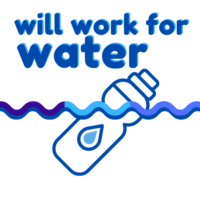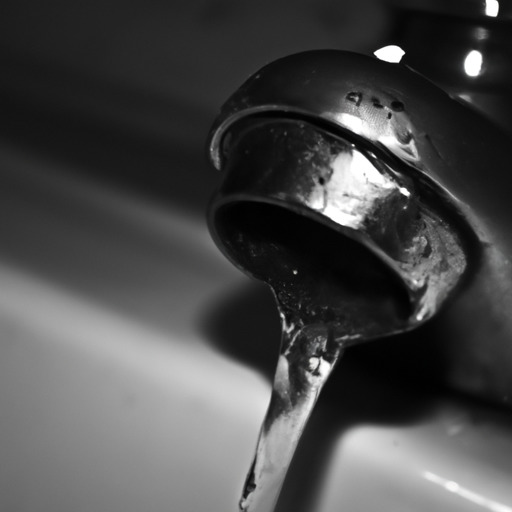Water conservation is a critical issue in the modern world, as the demand for water continues to rise while the supply dwindles. As individuals, it is our responsibility to take necessary steps to conserve this precious resource. In this article, I will provide valuable tips and techniques for households to adopt, helping to reduce water consumption and promote sustainability. From simple everyday changes to more advanced practices, these strategies will not only save water but also contribute to a greener future for generations to come.
1. Importance of Water Conservation
Water conservation is a critical issue that must be addressed in order to secure a sustainable future for generations to come. Saving water is not only an ethical responsibility, but it is also essential for our own survival and the health of our planet. By conserving water today, we can ensure that there will be an adequate supply of water for future generations.
1.1 Saving water for future generations
One of the primary reasons why water conservation is important is because it allows us to save this precious resource for future generations. Water is a finite resource, and as the global population continues to grow, our water supply is being stretched to its limits. By conserving water now, we can help ensure that there will be enough water available for our children and grandchildren.
1.2 Environmental impact of water scarcity
Water scarcity has a profound impact on the environment. When water sources become depleted, it disrupts ecosystems and threatens the survival of various plant and animal species. Additionally, water scarcity can lead to soil erosion, nutrient loss, and decreased agricultural productivity. By conserving water, we can help minimize these environmental impacts and preserve the delicate balance of nature.
2. Understanding Water Usage
In order to effectively conserve water, it is important to first understand how we use water in our daily lives. By monitoring our water usage and identifying areas of high water consumption, we can pinpoint areas where water conservation efforts can be most effective.
2.1 Monitoring water usage
Monitoring water usage is crucial in identifying areas where water conservation efforts are needed. This can be done by checking water bills, using water meters, or installing smart water meters that provide real-time data on water usage. By understanding how much water we are using and when we are using it, we can make informed decisions on how to reduce our water consumption.
2.2 Identifying areas of high water consumption
Once we have a clear understanding of our water usage patterns, it is important to identify areas of high water consumption. This can include outdoor watering, household appliances, and daily activities such as bathing and cooking. By pinpointing areas where water is being used excessively, we can take specific actions to reduce water consumption in those areas.
3. Fixing Leaks
One of the most significant sources of water waste in households is leaks. Even a small leak can lead to significant water loss over time. Therefore, it is crucial to promptly detect and repair any leaks in our plumbing system in order to conserve water.
3.1 Detecting leaks
Detecting leaks can be a challenge, especially if they are not easily visible. However, there are several ways to detect leaks in our plumbing system. One method is to regularly check for dampness or discoloration in walls, ceilings, or floors. Another method is to monitor water meters for any unusual water usage patterns, which may indicate a leak. Additionally, using leak detection devices can help identify hidden leaks that are not immediately noticeable.
3.2 Repairing leaking faucets and pipes
Once a leak has been detected, it is essential to repair it as soon as possible. Leaking faucets, toilets, and pipes can waste a significant amount of water over time. In many cases, repairing a leak can be a simple and inexpensive task. By addressing leaks promptly, we can prevent water waste and reduce our water consumption.
4. Upgrading Water Fixtures
Another effective way to conserve water in our households is by upgrading our water fixtures to more water-efficient options. By replacing outdated and inefficient fixtures with low-flow showerheads and water-efficient toilets, we can significantly reduce our water consumption without compromising on functionality.
4.1 Installing low-flow showerheads
Traditional showerheads can use a substantial amount of water in a short period of time. By installing low-flow showerheads, we can reduce the flow rate of water without sacrificing water pressure or shower experience. These showerheads can save both water and energy by limiting water usage while still providing a satisfying shower.
4.2 Using water-efficient toilets
Toilets are one of the biggest water consumers in a household. Older toilets can use a significant amount of water per flush, leading to unnecessary water waste. By upgrading to water-efficient toilets, such as dual-flush toilets or high-efficiency toilets, we can significantly decrease our water usage. These toilets use less water per flush while still effectively removing waste, thereby conserving water in our households.
5. Efficient Outdoor Watering
Outdoor watering, particularly for gardening and landscaping, can account for a significant portion of our water usage. By adopting efficient practices for outdoor watering, we can reduce the amount of water consumed while still maintaining a healthy and vibrant outdoor space.
5.1 Watering at appropriate times
Watering plants and lawns during the cooler parts of the day, such as early morning or late evening, can help minimize water loss due to evaporation. Additionally, it is important to avoid watering on windy days, as the wind can carry water away from the intended area. By watering at appropriate times, we can ensure that water is used efficiently and that it reaches the roots of plants where it is needed the most.
5.2 Using drip irrigation systems
Drip irrigation systems are highly efficient and targeted methods of watering plants. Unlike traditional sprinklers, which can result in water waste due to overspray and evaporation, drip irrigation systems deliver water directly to the roots of plants. This reduces water loss and ensures that water is used in the most efficient way possible. By using drip irrigation systems, we can save water while still maintaining healthy and beautiful outdoor spaces.
6. Collecting and Reusing Water
Collecting and reusing water is an effective way to conserve water and reduce our overall consumption. By installing rain barrels to collect rainwater and utilizing gray water for non-potable purposes, we can maximize water usage and minimize waste.
6.1 Installing rain barrels
Rain barrels are a simple yet effective way to collect rainwater for later use. By installing rain barrels under gutter downspouts, we can capture and store rainwater that would otherwise be lost to runoff. This collected water can then be used for watering plants, washing outdoor surfaces, or other non-potable purposes. By utilizing rain barrels, we can make use of free and abundant rainfall while reducing our reliance on treated tap water.
6.2 Using gray water for non-potable purposes
Gray water refers to gently used household water from sources such as sinks, showers, and laundry machines. While not suitable for human consumption, gray water can be safely used for activities such as flushing toilets or watering plants. By diverting gray water to these non-potable purposes, we can reduce the amount of fresh water used for these activities, ultimately conserving water in our households.
7. Conscious Water Usage Habits
In addition to implementing various techniques and technologies to conserve water, it is important to develop conscious water usage habits in our daily lives. By making simple changes to our routine, we can significantly reduce our water consumption without sacrificing comfort or convenience.
7.1 Turning off the tap while brushing teeth
Leaving the tap running while brushing teeth can waste a significant amount of water unnecessarily. By simply turning off the tap while brushing, we can conserve a considerable amount of water. This small habit change can have a big impact on our overall water consumption.
7.2 Taking shorter showers
Taking shorter showers is another effective way to conserve water. By reducing the amount of time spent in the shower, we can significantly decrease the amount of water used. To further conserve water, consider using a shower timer to help keep track of shower duration and remind yourself to keep showers as short as possible.
8. Water Conservation in the Kitchen
The kitchen is another area of the household where water conservation measures can be implemented. By adopting efficient practices in dishwashing and using appliances wisely, we can minimize water waste in the kitchen.
8.1 Using efficient dishwashers
Dishwashers can be more water-efficient than handwashing dishes, but it is important to use them wisely. When using a dishwasher, make sure to run it only when it is full to maximize water usage. Additionally, opt for energy-efficient dishwashers that have water-saving features. These dishwashers use less water per cycle and still effectively clean dishes, leading to significant water savings over time.
8.2 Only running full loads
When handwashing dishes, it is important to only run the tap when necessary. Fill a basin with water to wash dishes instead of letting the tap run continuously. This reduces water waste and ensures that water is used efficiently. Additionally, wait until the sink is full before washing a full load of dishes, thereby minimizing the number of times the tap needs to be turned on and off.
9. Laundry Water Conservation
Laundry is another area where water conservation can be practiced. By utilizing high-efficiency washing machines and finding ways to reuse laundry water, we can conserve water in our daily laundry routines.
9.1 Using high-efficiency washing machines
High-efficiency washing machines are designed to use less water compared to traditional top-loading machines. These machines are more efficient in terms of water usage and still provide excellent cleaning results. By upgrading to high-efficiency washing machines, we can reduce our water consumption during each laundry cycle.
9.2 Reusing laundry water
Laundry water, known as gray water or suds, can be reused for certain non-potable purposes such as flushing toilets or watering outdoor plants. By diverting laundry water to these uses instead of letting it go down the drain, we can make the most of this resource and minimize water waste. Ensure that the laundry detergent used is suitable for gray water reuse, and avoid using water containing harsh chemicals or contaminants.
10. Educating and Advocating
In addition to implementing water conservation practices within our own households, it is important to spread awareness and support water conservation initiatives in our communities. By educating others about the importance of water conservation and advocating for sustainable water practices, we can contribute to a collective effort in preserving this vital resource.
10.1 Spreading awareness within the community
One of the most effective ways to promote water conservation is by spreading awareness within our local communities. This can be done through community events, workshops, or online platforms. By sharing information about the importance of water conservation and practical tips for reducing water consumption, we can inspire others to take action and make a positive impact.
10.2 Supporting water conservation initiatives
Supporting water conservation initiatives is another way to make a difference. This can involve donating to organizations dedicated to water conservation, participating in community cleanup efforts, or volunteering for water-related projects. By actively supporting these initiatives, we can contribute to the larger goal of conserving water and securing a sustainable future for all.
In conclusion, water conservation is a crucial endeavor in today’s modern world. By saving water for future generations, understanding our water usage, fixing leaks, upgrading water fixtures, adopting efficient practices for outdoor watering, collecting and reusing water, developing conscious water usage habits, conserving water in the kitchen and laundry, and educating and advocating for water conservation, we can collectively make a positive impact on our water resources. It is only through a combined and concerted effort that we can ensure a sustainable and water-secure future for generations to come.


